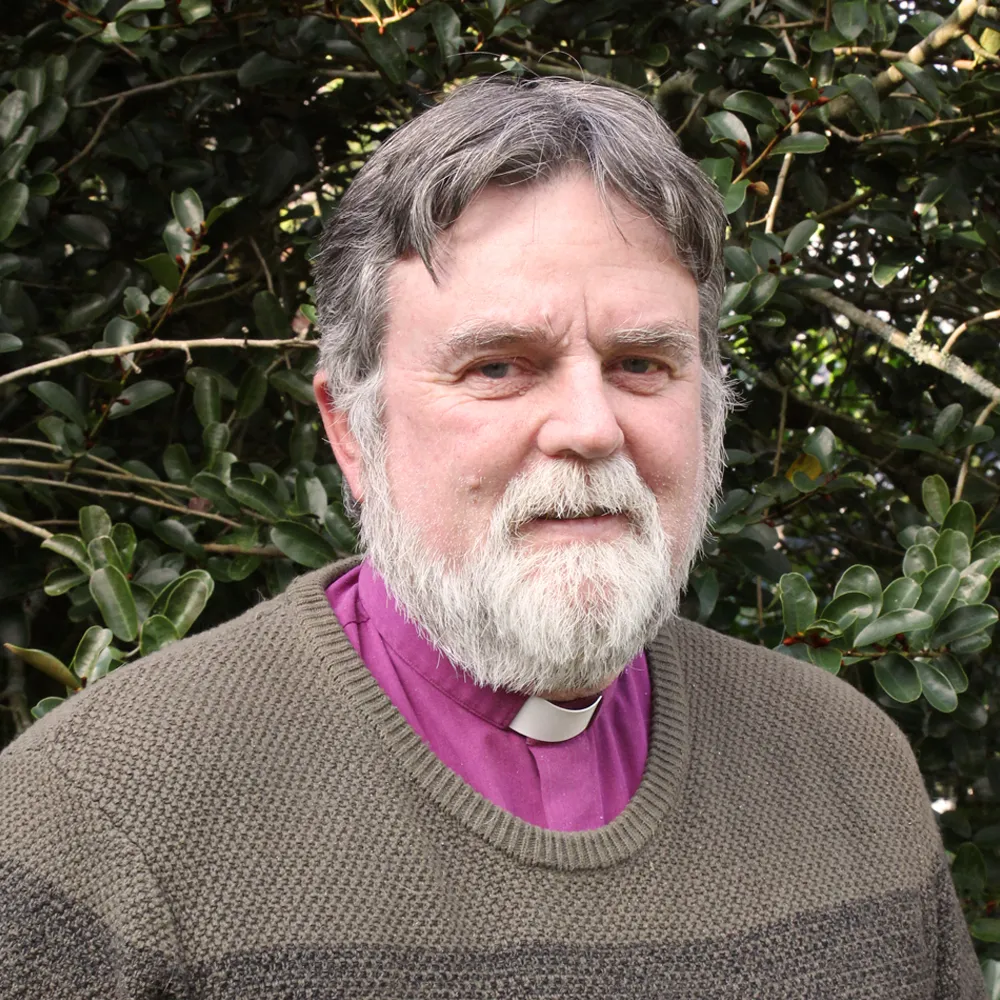Our History
BAF, or the Bishop’s Action Foundation has been a long-standing leader in the Taranaki Church and wider community. Our history began when the Bishopric of Taranaki was established in 1998 under the Diocese of Waikato. On Valentine’s Day, February 1999, at an Electoral Synod held in Stratford, Philip Richardson was elected as Bishop of Taranaki. At the time of his nomination Philip Richardson was the Warden of Selwyn College at the University of Otago.
On 10 July 1999, he became Bishop Philip Richardson at a consecration service at St Mary’s Church in New Plymouth. His best friend from Dunedin, a Roman Catholic priest called Peter Norris, preached at the consecration.This was believed to be only the second time since the Reformation that a Catholic priest preached at an Anglican Episcopal ordination.
When Philip Richardson achieved the Taranaki bishopric, it was envisaged that he would be the Assistant Bishop to David Moxon, the Bishop of the Waikato Diocese. Bishop David gave the younger man total control of Taranaki. After nine years of co-collaboration, the co-relationship was officially sanctioned by the Anglican Church, a Dual Episcopacy – two Bishop’s as co-equals in the one diocese.
When Philip was elected and came to Taranaki he found little there. The available resources were just enough to pay his expenses, stipend and a part time secretary. There was no resource to take any kind of initiative. Philip was determined to find a way to release resources if he was going provide the community with real outcomes.
It is here in 1999, that Stuart Trundle held a meeting of Anglican clergy about the regional economy and how the Church in Taranaki should have a leadership role to play driving the region forward.
Following a period of conversation Stuart presented Philip with a schematic diagram drawn up on a single sheet of paper, depicting a Trust that could provide a resource and strategic creativity to enable the Bishop to more effectively contribute to the health and well-being of the communities of Taranaki. Using resources from the Anglican Church and Venture Taranaki Trust, Dr Sharon Milne was commissioned to investigate the concept proposed by Stuart. The 2004 report, called The Bishop’s Action Foundation: A Project of the Bishop in Taranaki, identified the need for one umbrella organisation to work with existing groups to build their capacity so they could effectively respond to the community needs they were set up to address.
About the same time, Bishop Philip began a dialogue with Simon Cayley and Louise Tester, both from the New Plymouth District Council, Mark Poppelwell from the Ministry of Social Development, Jim Greenaway (former director of Anglican-Methodist Social Services in Auckland), and Hikoi of Hope organiser Stephanie McIntyre (director of Downtown Community Ministry in Wellington). Everyone was excited about the opportunity proposed.
Next, Bishop Philip began approaching people he believed would make ideal trustees. With trepidation, he approached Stuart Trundle, John Young (then chairman of Kiwi Co-op Dairies and director of the New Zealand Dairy Board); Mary Bourke (then long-time Mayor of South Taranaki); Jim Gibbons (general manager of Energy City Ford); and Gerald Bailey (former chancellor at University of Waikato). Each agreed to be a founding trustee.
The deed for the Bishop’s Action Foundation Charitable Trust was signed in April 2005 and, with an initial financial underwrite of $100,000, secured from the Finance Administration Council of the Waikato Diocese, it was time to employ someone.
On July 7, 2005, Simon Cayley began as chief executive officer of The Bishop’s Action Foundation. He first began working in a small workroom at the back of Bishop Philip’s house on Mangorei Rd, and since then the Trust has grown from strength to strength.
You can read the full early history of BAF from its inception and through its early years here.
The Most Reverend Philip Richardson
The Most Reverend Philip Richardson is the Bishop of The Anglican Diocese of Waikato and Taranaki. He studied at University of Otago from 1976, completing a BA in 1978, a BTheol 1982 and a Post Graduate Diploma in Theology in 1989.
Married to Belinda Holmes in 1982 he was ordained priest in the same year. He undertook pastoral ministry in Auckland City, Whangarei and Dunedin then was appointed head of Selwyn College at Otago University completing post graduate study and teaching.
Bishop Philip has focused on finding creative ways for the Church to contribute to the building of healthy and sustainable communities. He has written and spoken widely on the principles of working for the Common Good. This thinking has always been rooted in practical experience and initiatives.
He was appointed as the Bishop of Taranaki in 1999 and became Co-Diocesan Bishop of the Diocese of Waikato and Taranaki from 2008, Tikanga Pakeha Archbishop of New Zealand from 2013-2023 and has been the sole Diocesan Bishop in Waikato and Taranaki since 2018.
His leadership of the Anglican Church in Aotearoa, New Zealand and Polynesia was alongside the Archbishop of Tikanga Māori and the Archbishop of Polynesia. Nationally he has roles in leading the Church in social justice and social service delivery, elder care, education and financial and investment governance and has had a key leadership role in our Church’s response to The Abuse in Care Royal Commission of Inquiry.
“I am grateful to have the opportunity to maintain an ongoing relationship with a group of people and an organisation who’s ability to make a transformative difference in Taranaki is both proven and ongoing.”

Philip Richardson
Founder and Patron
Prior Trust Member Stories
Below you will find a selection of changemaker stories that showcase the great work of people in our communities and help to demonstrate the impact BAF’s role can achieve.
Help us bring communities together
Do you have valuable experience to offer or funding capability to help us enable our changemakers to create thriving Taranaki communities?